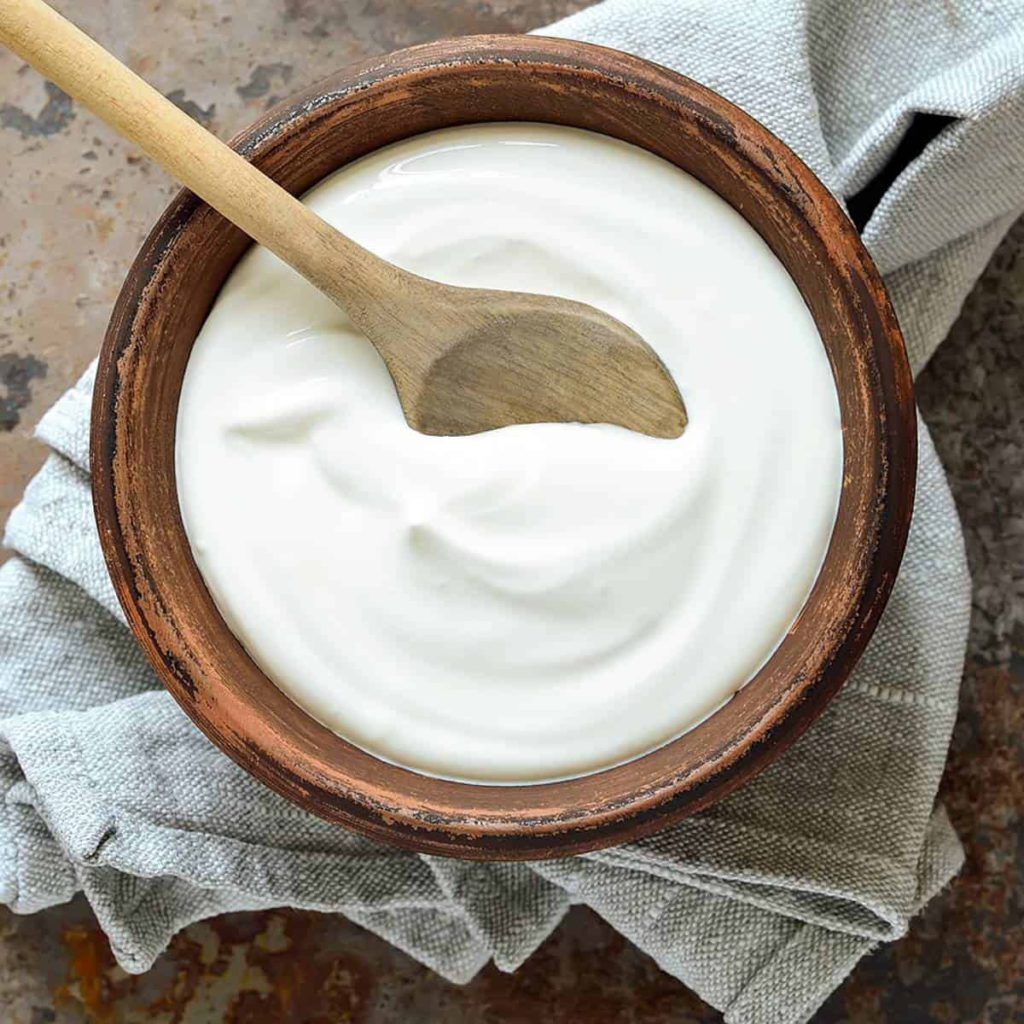Yogurt, popular among both children and adults, is regarded as a superfood due to its abundance of health advantages. Yogurt is nutrient-rich. It is a fantastic source of calcium and proteins. B-complex vitamins, potassium, phosphorus, and magnesium are also present in yogurt. It increases your body’s metabolism.
Exactly how is yogurt made?
Its beneficial benefits come from the fermentation of milk by bacteria during its production.
Yogurt is made with probiotics like Lactobacillus bulgaricus and Streptococcus thermophilus. They ferment milk, causing the lactose to be transformed into lactic acid.
The resulting production of lactic acid causes the milk’s proteins to coagulate, giving the liquid a thick consistency and sour flavor. The resulting yogurt can be consumed plain, sweetened, or fruit-flavored to taste. Yogurt can be used in a variety of meals as well as smoothies.

Does yogurt resemble curds?
Curd and yogurt differ just a little from one another; both are dairy products produced using somewhat similar processes. Lactic acid is produced when bacteria are added to milk to ferment it, giving yogurt its sour flavor and creamy texture. On the other hand, to make curd, milk must be mixed with an acidic ingredient, such as vinegar, lemon juice, or rennet. The milk coagulates or curdles as a result of this.
Yogurt is one of the best options for naturally manufactured probiotics because it contains lactobacillus bacteria as well as certain other bacteria. Similar to yogurt, curds also contain some bacteria, although not as much.
The curds can frequently be processed further to create cheese, which is another difference between yogurt and curds. Curds and yogurt are both available unflavored or flavored and consumed as drinks and desserts.
Finally, even though yogurt and curd both contain less lactose than milk, those who are lactose sensitive prefer yogurt.

Benefits of having Yogurt daily:
1. Enhances Digestion:
Yogurt boosts the flora of our bodies and helps us maintain regular bowel movements. It strengthens the condition of our digestive system and gets rid of harmful bacteria in the gut. Additionally, lactose intolerance, constipation, inflammatory bowel disease, and infections brought on by the Helicobacter pylori bacteria have all been successfully treated with yogurt.
2. Boost Your Immunity Naturally:
Regular yogurt eating strengthens our immune systems and shields our bodies from various illnesses. Yogurt successfully combats respiratory conditions like the common cold and flu, gastrointestinal diseases, and even cancer. Yoghurt also contains magnesium, selenium, and zinc, which boosts immunity.
3. Reduces the chance of cancer:
Yogurt is recognized to guard against colon, bladder, and breast cancer and possesses anti-carcinogenic qualities.
4. Blood Sugar Levels:
Regular consumption of homemade, unsweetened yogurt is beneficial for persons with type 2 diabetes mellitus and helps to manage blood sugar levels.
5. Healthy for Bones:
Yogurt is a great food for enhancing bone health because it is a calcium-rich food. Yogurt consumption helps to maintain bone density and strength, which lowers the risk of fractures and osteoporosis.
6. It reduces inflammation:
Yogurt consumption every day helps to minimize inflammation in the body. Most autoimmune illnesses, diabetes, cancer, and arthritis are brought on by inflammation.
7. Yoghurt reduces high Blood Pressure and heart-related diseases:
Yogurt consumption has been demonstrated to lower blood pressure, a key risk factor for heart diseases. This lowers high blood pressure and the risk of heart disease. Yogurt lowers the risk of heart disease as a result.
8. Reduces Allergy Symptoms:
Yogurt consumption lowers the amount of antibodies our immune system produces in response to any type of allergy. Yogurt’s probiotic components are what cause this effect.
Yoghurt Can Be Made at Home in 4 Simple Steps:
Step one: The milk must first be heated (use whole milk for thicker, creamier yogurt) and the gas must be turned off just before the milk reaches a boil.
Step two: Allow the milk to cool.
Step three: Add the yogurt and whisk thoroughly when the milk is just warm to the touch. About 2 tablespoons of yogurt should be added to 1 liter of milk.
Step four: Next, leave this mixture in a warm location for roughly 6 to 8 hours (or overnight), untouched.
Yogurt side effects:
Yogurt does not yet have any known adverse effects, however, it is advised to make your own because store-bought varieties are sometimes laden with unhealthy sugars and chemicals.
Homemade yogurt is preferable to commercial variants because the latter may contain undeclared sugar and preservatives. Eat it plain or serve it with meals. You can also add fruit to it or sip it as a beverage.






